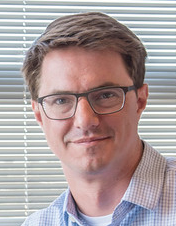iSchool Research Symposium: Bill Howe
Integrative Data Equity Systems
 As the deployment of automated decision systems continues to accelerate, their interactions with fundamental questions in law, in the social sciences, and in public policy have become impossible to ignore. Although these technologies can improve objectivity and consistency, there is growing recognition of the enormous potential for harm. As we train models on measurements from a biased world, we are amplifying, operationalizing, and, most insidiously, legitimizing the historical discrimination and opacity that the technology was in part intended to counteract.
As the deployment of automated decision systems continues to accelerate, their interactions with fundamental questions in law, in the social sciences, and in public policy have become impossible to ignore. Although these technologies can improve objectivity and consistency, there is growing recognition of the enormous potential for harm. As we train models on measurements from a biased world, we are amplifying, operationalizing, and, most insidiously, legitimizing the historical discrimination and opacity that the technology was in part intended to counteract.
In this talk, Bill Howe will argue that data systems research needs to broaden scope to explicitly model, manage, and communicate assumptions and requirements about the contexts in which the systems are deployed, making equity issues a first-class design consideration. He will provide some examples of the tensions, and describe some of our projects in this space, including learning fair representations of heterogeneous data to combat bias and providing interactive warning labels to communicate fitness for use downstream.
He'll also give some thoughts on the roles of abstraction and automation in how we train students and how academic research in this space can be conducted more responsibly.
Bill Howe is Associate Professor in the Information School and Adjunct Associate Professor in the Allen School of Computer Science & Engineering and the Department of Electrical Engineering. His research interests are in data management, machine learning, and visualization, particularly as applied in the physical and social sciences. As Founding Associate Director of the UW eScience Institute, Dr. Howe played a leadership role in the Moore-Sloan Data Science Environment program through a $32.8 million grant awarded jointly to UW, NYU, and UC Berkeley, and founded UW’s Data Science for Social Good Program. With support from the MacArthur Foundation, NSF, and Microsoft, Howe directs UW’s participation in the Cascadia Urban Analytics Cooperative. He founded the UW Data Science Masters Degree, serving as its inaugural Program Chair, and created a first MOOC on data science that attracted over 200,000 students. His research has been featured in the Economist and Nature News, and he has authored award-winning papers in conferences across data management, machine learning, and visualization. He has a Ph.D. in Computer Science from Portland State University and a Bachelor’s degree in Industrial & Systems Engineering from Georgia Tech
